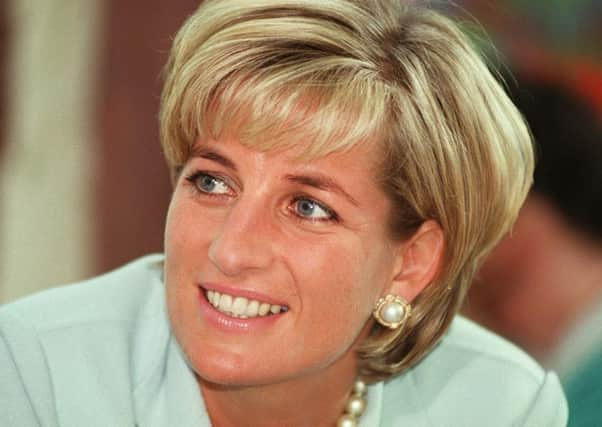Diana: Twenty years since interview that rocked the Royal Family


On a chilly evening 20 years ago this week, 15 million people sat down to watch a television programme that as it unfolded threatened to change this country forever.
It was the explosive interview with Princess Diana in which she took revenge for the wrongs done to her by the Royal Family and unwittingly exposed how deeply troubled a soul she was.
Advertisement
Hide AdAdvertisement
Hide AdOver the course of an hour, she wreaked such damage on the House of Windsor that many wondered if the monarchy had a future after the Queen left the stage. Worse, there were those who felt that this fractured family with its apparent knack for inflicting misery upon each other was unfit to play any further part in public life.
Twenty years on, with the Royal Family scaling heights of popularity it could hardly have dreamed of in 1995 – due in no small part to Diana’s eldest son – it is easy to forget how threadbare its relationship with the public had become. Though the Queen’s popularity never wavered, large sections of the public had come to regard the family’s younger members as an expensive sideshow deserving neither respect nor affection.
The vast audience for the broadcast on November 20 – more akin to a hit Saturday evening show than an edition of the BBC’s Panorama – signified how fascinated Britain was with the glamorous yet plainly fragile princess.
But it also indicated how uncertain many were about the future of the institution she had given such a boost in popularity with her supposedly fairytale marriage to Prince Charles 12 years before. The fairytale had rapidly turned into a story of infidelity, illness, paranoia, isolation and desperation.
Advertisement
Hide AdAdvertisement
Hide AdAs that story slowly leaked out, the Royal Family’s standing sank. In 1994, Charles admitted adultery in an interview, but nothing prepared the nation for the impact that Diana’s appearance had.
Doe-eyed, hurt, but vengeful, she stuck the knife in. “There were three of us in this marriage, so it was a bit crowded,” was her most memorable – and carefully-crafted – line.
Exactly a month later, the Queen asked her heir to seek an early divorce from Diana, which happened on August 28 1996. A year and three days later, Diana was dead at 36.
The lessons of that soul-baring interview have been profound and far-reaching for the Royal Family. A layer of stuffiness and protocol unchanged since the age of Victoria was stripped away as a result of what she revealed.
Advertisement
Hide AdAdvertisement
Hide AdThe happy consequence of the pain laid bare by Diana was that Prince William could marry for love, and in doing so found himself more in tune with the lives of millions of other contented couples who could relate to him and his bride in a way they never could to Charles and Diana once the truth began to seep out.
Her interview – easily found on the internet – has lost none of its power in the intervening two decades. In the light of what was fated to happen to her, parts of it are especially sad to see again, not least the hints at a life of gilded emptiness that lay ahead.
We shall never know how often the senior members of the Royal Family ask themselves: “What if she had lived?” Would she have been a constantly disruptive presence? A self-styled “queen of hearts” offering an alternative vision of what a monarch should be? Or would her life have been superficially glittering but without purpose, spent traipsing pointlessly around the world’s most exclusive resorts, the permanently travelling guest of billionaires, shown off like a butterfly pinned to a board under glass.
Perhaps, 20 years on, members of the House of Windsor may click on Diana’s interview and reflect that it is not only a searing document of personal unhappiness but for any royal family, a warning from history of how their fortunes can go terribly wrong.